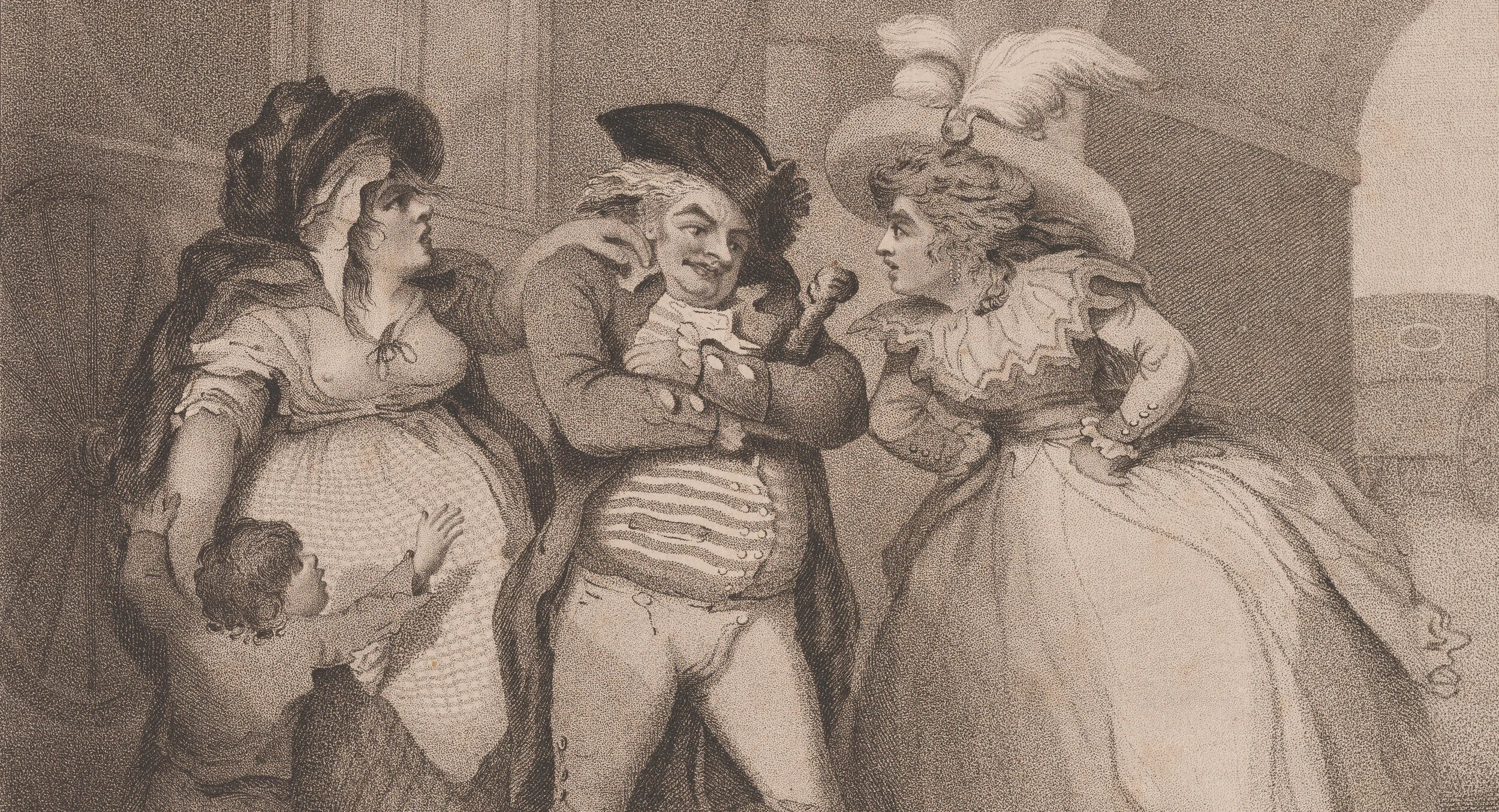Author: David Wilber
In 2 Peter 3:15-17, Peter warns that Paul’s letters contain content that is “hard to understand” and which “the ignorant and unstable” misinterpret. He then connects the mishandling of Paul’s letters to “lawless people.” Here is what he writes:
And count the patience of our Lord as salvation, just as our beloved brother Paul also wrote to you according to the wisdom given him, as he does in all his letters when he speaks in them of these matters. There are some things in them that are hard to understand, which the ignorant and unstable twist to their own destruction, as they do the other Scriptures. You therefore, beloved, knowing this beforehand, take care that you are not carried away with the error of lawless people and lose your own stability.
—2 Peter 3:15-17
In this article, I will argue that 2 Peter 3:15-17 represents Peter’s warning regarding antinomians (individuals who reject God’s law) who misinterpret passages in Paul’s letters to advocate for lawlessness.
Who Was Misinterpreting Paul’s Letters?
Peter writes that there are things in Paul’s letters that are hard to understand. In Greek, the word translated as “hard to understand” is δυσνόητος, a term applied to texts that are difficult to interpret.[1] However, as Douglas Moo remarks, Peter’s point is “not so much that what Paul wrote was obscure.”[2] Rather, in context, his point is that Paul’s letters are susceptible to misinterpretation when approached by “ignorant” and “unstable” people. Richard Bauckham suggests that these descriptions carry a sense of condemnation: “these people are ignorant because they are unwilling to learn, and unstable because they allow themselves to be misled.”[3]
When Peter cautions against “ignorant and unstable” people who twist Paul’s letters (and the other Scriptures), he specifically has in mind the false teachers he has been condemning throughout his epistle (2 Pet. 2:1ff).[4] According to Moo, “What Peter suggests, then, is that these false teachers are ‘twisting’ Paul’s own writings as support for their heresies.”[5]
What “heresies” were these false teachers promoting? Their first heresy was their rejection of the doctrine that the Messiah would return and bring judgment (2 Pet. 1:16; 3:3-4). Their second heresy was antinomianism (2 Pet. 2:2, 7-10, 14, 18-22). These two heresies were connected: the false teachers promised “freedom” (2 Pet. 2:19) from the consequences of their lawlessness because they claimed that the Messiah’s return was just a “cleverly devised myth” (2 Pet. 1:16). Hence, according to the false teachers’ logic, since there is no future judgment, why not abandon all moral boundaries and indulge the desires of the flesh?
How Did the False Teachers Misinterpret Paul’s Letters?
The false teachers were twisting Paul’s words in order to justify their doctrine. But which specific heresy were they misusing Paul’s letters to support? It is difficult to imagine how they could have appealed to Paul’s letters to bolster their denial of the Messiah’s return. Instead, according to Richard Bauckham, “a more obvious misuse of Paul” involves passages that “could be held to support antinomianism.”[6] Douglas Moo and Thomas Schreiner agree that this misuse of Paul’s letters was likely what Peter had in mind.[7]
The false teachers seem to have misrepresented Paul’s teachings on the law and referenced passages from his letters in a manner that the apostle did not intend.[8] Namely, they appealed to Paul’s letters to justify their lawless doctrine, thereby distorting Paul’s teachings regarding the law. Paul himself countered this “slanderous” misrepresentation of his teachings (Rom. 3:8; cf. 6:15; Gal. 5:13).[9]
The following three reasons support the conclusion that Peter directed his rebuke toward those who misused Paul’s letters to justify their antinomian doctrine:
First, Peter directly connects the error of mishandling Paul’s letters to lawless people: “take care that you are not carried away with the error of lawless people [τῶν ἀθέσμων] and lose your own stability” (2 Pet. 3:17). These “lawless people,” again, are the false teachers that Peter confronts throughout the epistle. Earlier, Peter used the term “lawless people” (ἀθέσμων) to describe the “wicked” Sodomites (2 Pet. 2:7). Similarly, Peter condemned the false teachers for their sexual immorality, blasphemy, greed, lying, and their rejection of the “way of righteousness” and “holy commandment” (2 Pet. 2:1ff). According to Michael Cha, “the translation ‘lawless’…reflects [the term’s] habitual usage and connection to the biblical commandments of God.”[10] Indeed, Philo uses this same term to describe the “law-breakers” (ἀθέσμων) who transgress the law of Moses, consequently falling under the punishments stipulated in Leviticus 26 and Deuteronomy 28 (Philo, On Rewards and Punishments 126). Thus, misinterpreting Paul’s letters is “the error of lawless people”—it is the error of those who reject the law.
Second, a few verses earlier, Peter urges his readers to lead lives characterized by “holiness and godliness” (2 Pet. 3:11) and to strive to be found by God “without spot or blemish” (2 Pet. 3:14). These traits reflect “a way of life that is measured by the standard of the law of God.”[11] In his first epistle, Peter explicitly cites the law of Moses as the foundation for his exhortation to pursue holiness (1 Pet. 1:15-16). According to Peter, this call to holiness was one of the “matters” that Paul similarly discussed in his own letters (2 Pet. 3:16). As Schreiner writes, “Verse 16 continues the discussion of Paul’s letters with the remark that Paul spoke ‘of these matters,’ that is, of the importance of holiness (v. 14) and the patience of the Lord.”[12] Directly following Peter’s statement that Paul discussed matters related to holiness, he claims that lawless people twist Paul’s words in a different direction.
Third, Peter’s reference to “the other Scriptures” indicates that he considers the Law and Prophets to be valid and authoritative and that Paul’s letters are consistent with these Scriptures. The word “Scripture” (γραφή) is used fifty times in the New Testament, and it “always refers to the authoritative writings that we call the Old Testament.”[13] From Peter’s perspective, Paul’s teaching aligns with that of the Law and Prophets, all falling under the category of “Scripture.” In other words, Paul’s letters do not disagree with the Law and Prophets. The false teachers twisted both Paul’s letters and “the other Scriptures” toward the same antinomian ends.
Given these considerations, Peter’s warning against being “carried away with the error of lawless people” serves as a strong admonition not to interpret Paul as teaching antinomianism. According to Peter, such an interpretation distorts Paul’s words and ultimately leads to destruction.
Conclusion
In 2 Peter 3:15-17, Peter issues a stern warning about people who misinterpret Paul’s letters, cautioning his readers not to be misled by “the error of lawless people.” This error involves twisting passages from Paul’s letters to support antinomian doctrine. Peter’s exhortation to lead lives characterized by holiness and godliness, along with his affirmation of the authority of the Law and Prophets, highlights the importance of interpreting Paul’s letters in harmony with the law rather than in alignment with the antinomian doctrine of the false teachers who advocated “freedom” from the law.
[1] Richard Bauckham, Jude-2 Peter, WBC (Grand Rapids, MI: Zondervan, 1983), 331.
[2] Douglas Moo, 2 Peter, Jude, NIVAC (Grand Rapids, MI: Zondervan, 1996), 211.
[3] Bauckham, 331.
[4] Moo, 211-212: “Almost certainly he is referring to the false teachers whom he has been rebuking throughout the letter.
[5] Ibid., 212.
[6] Bauckham, 332.
[7] Moo, 212; Thomas R. Schreiner, 1 & 2 Peter and Jude, NAC (Nashville, TN: B&H Publishing Group, 2003), 397.
[8] See Jörg Frey, The Letter of Jude and the Second Letter of Peter (Waco, TX: Baylor University Press, 2018), 426: “the concern here is the broad accusation brought against the opponents in ch. 2—namely, the seduction into an unethical, generally antinomian way of life, perhaps in connection with a proclamation of “freedom” (2:19). This could certainly be perceived as a Pauline “catchword” (cf. Rom 8:2; 2 Cor 3:17), and their proclamation could appear to the author as an unacceptable perversion of the apostolic truth and thus as a misinterpretation.”
[9] See Bruce W. Longenecker and Todd D. Still, Thinking Through Paul: A Survey of His Life, Letters, and Theology (Grand Rapids, MI: Zondervan, 2014), 183: “Evidently Paul’s gospel was being misrepresented as promoting what might be called an immoral ‘libertinism’—living without any kind of restraint.”
[10] Michael I. Cha, Misunderstanding Galatians: An Exegetical, Originalist Commentary (Eugene, OR: Wipf & Stock, 2021), xi.
[11] Ibid.
[12] Schreiner, 396.
[13] Moo, 215.
About David Wilber
David is first and foremost a passionate follower of Yeshua the Messiah. He is also a writer, speaker, and teacher.
David’s heart is to minister to God’s people by helping them rediscover the validity and blessing of God’s Torah and help prepare them to give an answer to anyone who asks about the hope within them (1 Peter 3:15)…































